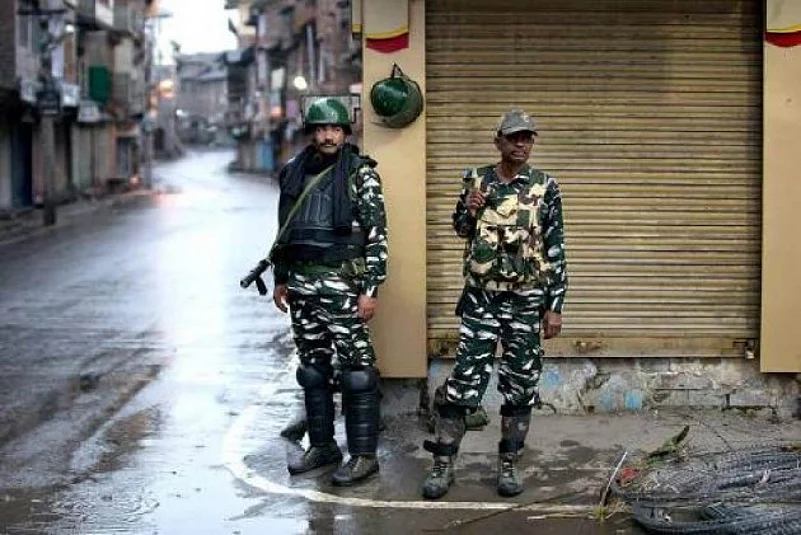Curfew-like restrictions were reimposed on Tuesday in several parts of Kashmir as a precautionary measure for maintaining law and order in the Valley, officials said.
Srinagar's commercial hub, Lal Chowk, was completely sealed off by placing concertina wires at all entry points where large number of security force personnel were deployed, officials said.
The officials did not cite any reasons for reimposing restrictions but it is believed that the step was taken to prevent Muharram processions in the city and elsewhere in the Valley.
The processions stand banned in Kashmir since 1990 when armed insurgency began.
Muharram is considered as one of the sacred months of the Islamic lunar calendar. The battle of Karbala, in which Hazrat Imam Hussain - the grandson of the Prophet - had attained martyrdom - is said to have been taken place in the 7th century.
Restrictions were first imposed across Kashmir on August 5 when the Centre announced its decision to abrogate provisions of Article 370 and bifurcate the state into union territories. The restrictions were lifted in phases from many parts of the Valley as the situation improved with the passage of time.
The authorities have been imposing restrictions in vulnerable areas of the Valley every Friday, apprehending that vested interests might exploit the large gatherings at big mosques and shrines to fuel protests.
Meanwhile, normal life remained severely affected in Kashmir due to shutdown in the Valley which entered 37th day on Tuesday.
Markets and other business establishments remained closed while public transport was off the roads across the Valley, the officials said.
Most of the top-level and second-rung separatist politicians have been taken into preventive custody while mainstream leaders, including three former chief ministers -- Farooq Abdullah, Omar Abdullah and Mehbooba Mufti -- have also been either detained or placed under house arrest.
















